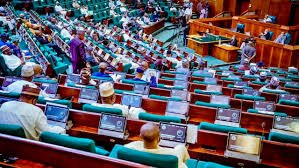THE SENATE COMMITTEE on National Identity and Population has made a resounding call for a national census, urging President Bola Tinubu to prioritise the exercise this year.
The appeal was made known during a budget defence session on Tuesday, where lawmakers expressed frustration with the country’s reliance on estimated population data for planning.
At the heart of the discussion was the Chairman of the National Population Commission (NPC), Nasir Kwarra, who appeared before the committee to defend the commission’s 2025 budget allocation.
During the deliberations, senators stressed the urgent need for a biometric-based census to address challenges posed by outdated and unreliable data.
“We cannot keep planning with guesses,” lamented Plateau Central Senator Diket Plang.
“There’s no way you can plan effectively without knowing what you’re planning for. It’s like a father not knowing how many children he has.”
Nigeria, with an estimated population of 218.5 million, is Africa’s most populous nation and ranks as the sixth largest globally.
However, the country has not conducted a census since 2006, when the official count placed the population at 140.43 million. At that time, the exercise revealed significant regional disparities and a youthful demographic, with over 60% of the population under the age of 24.
Since then, high birth rates and urban migration have driven rapid population growth, but accurate figures remain elusive.
This void has left the government reliant on projections from international organisations, raising questions about the credibility of data used for economic, security, and social planning.
Bauchi Central Senator Abdul Ningi highlighted the security implications of this gap, stating, “The absence of up-to-date population data is a national security risk. Insecurity thrives when you lack the numbers to plan and provide.”
The Push for a Biometric-Based Census
During the session, Mr Kwarra assured lawmakers that the NPC had taken steps to prepare for a census, emphasising the adoption of biometric technology to ensure accuracy.
“The president has shown interest in conducting a biometric-based census to enhance security and accuracy,” Mr Kwarra disclosed.
“This approach will prevent issues like double-counting or accusations of counting non-human entities. Biometrics will cover faces, fingerprints, and voices, making it a robust and reliable system.”
The Explainer gathered that past censuses in Nigeria have been fraught with controversies.
The 2006 exercise, though widely acknowledged as a milestone, faced criticism for allegations of inflated figures in some regions and undercounts in others.
The data from that census remains contentious, with some states accusing others of manipulating numbers for political gain.
Senators across party lines called for swift government action, warning that delays could push the census into Nigeria’s next election cycle, potentially derailing the process.
“This is the year we must conduct a census,” asserted Osun West Senator Oyewunmi Olalere. “By 2026, we’ll be consumed by election activities. The time to act is now.”
Sokoto South Senator Aminu Tambuwal echoed this sentiment, assuring the NPC of legislative support.
“You have our backing to ensure this census becomes a reality. You cannot plan without data,” he said.
The 2006 Nigerian census, conducted under President Olusegun Obasanjo, was a significant effort to modernize data collection processes.
The exercise employed advanced technologies such as the Geographical Positioning System (GPS) and Satellite Imagery to create geo-referenced enumeration area maps. Additionally, machine-readable forms and the Automated Fingerprint Identification System (AFIS) were utilized to detect and prevent multiple counting.
ALSO READ: Senate Members Demand Dissolution of UNIABUJA Governing Council
Financially, the previous census cost approximately $266 million, with more than half of the funding provided by the European Union and other international donors..
Despite the substantial investment, the census faced logistical challenges, including limited access to remote areas and the need to mobilize nearly one million enumerators across the country.
These challenges notwithstanding, the 2006 census provided a foundational understanding of Nigeria’s demographic dynamics, recording a total population of 140 million.
The Explainer noted that former President Muhammadu Buhari, the Nigerian government allocated N532.7 billion for a national census in 2023 but the exercise was postponed and ultimately not conducted.
The postponement was officially approved by President Buhari in April 2023, with the intention for the incoming administration to set a new date. Despite the postponement, reports indicate that approximately N200 billion had already been expended on preparations for the census.
This sequence of events has prompted lawmakers to express concerns about the potential repetition of such delays and financial expenditures without tangible outcomes, underscoring the necessity for decisive action to ensure the successful execution of the census.






















